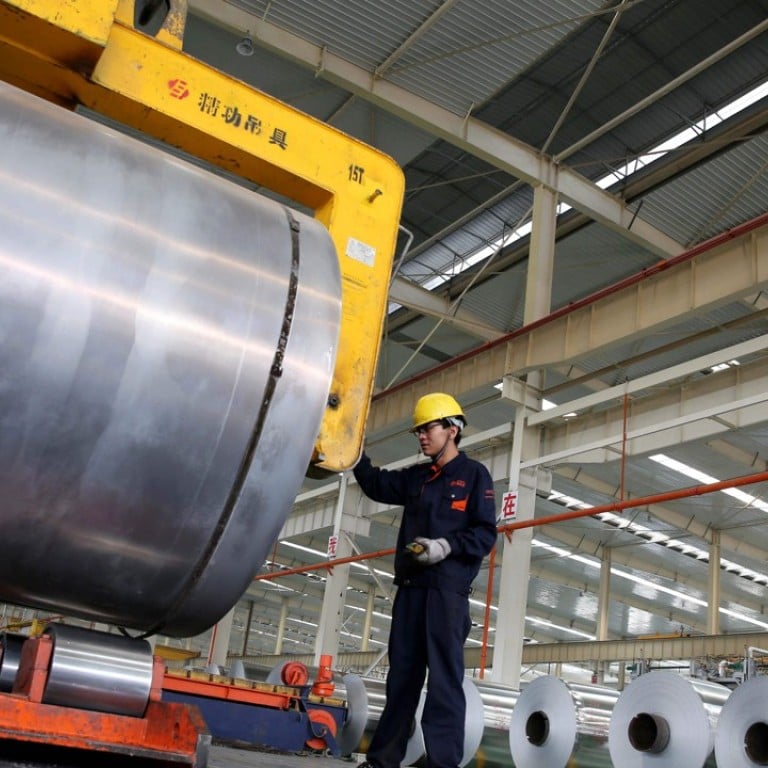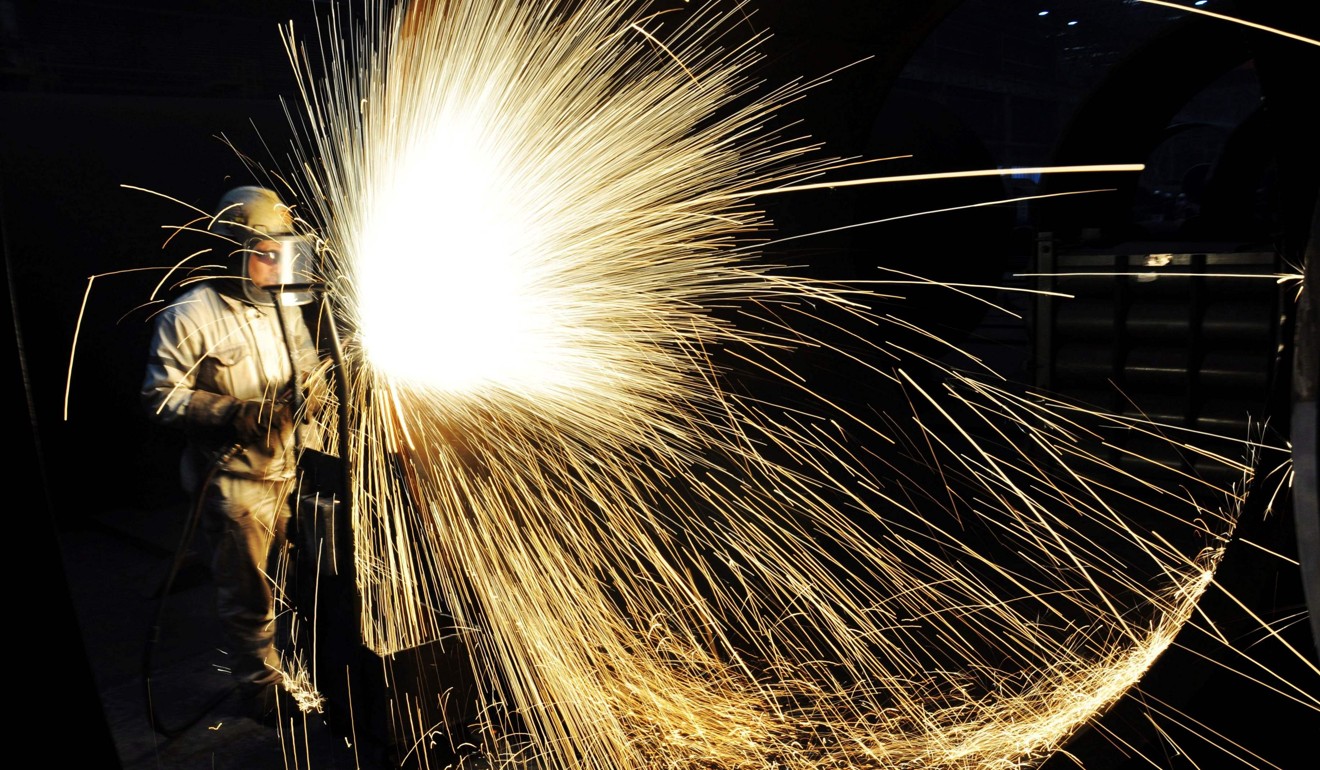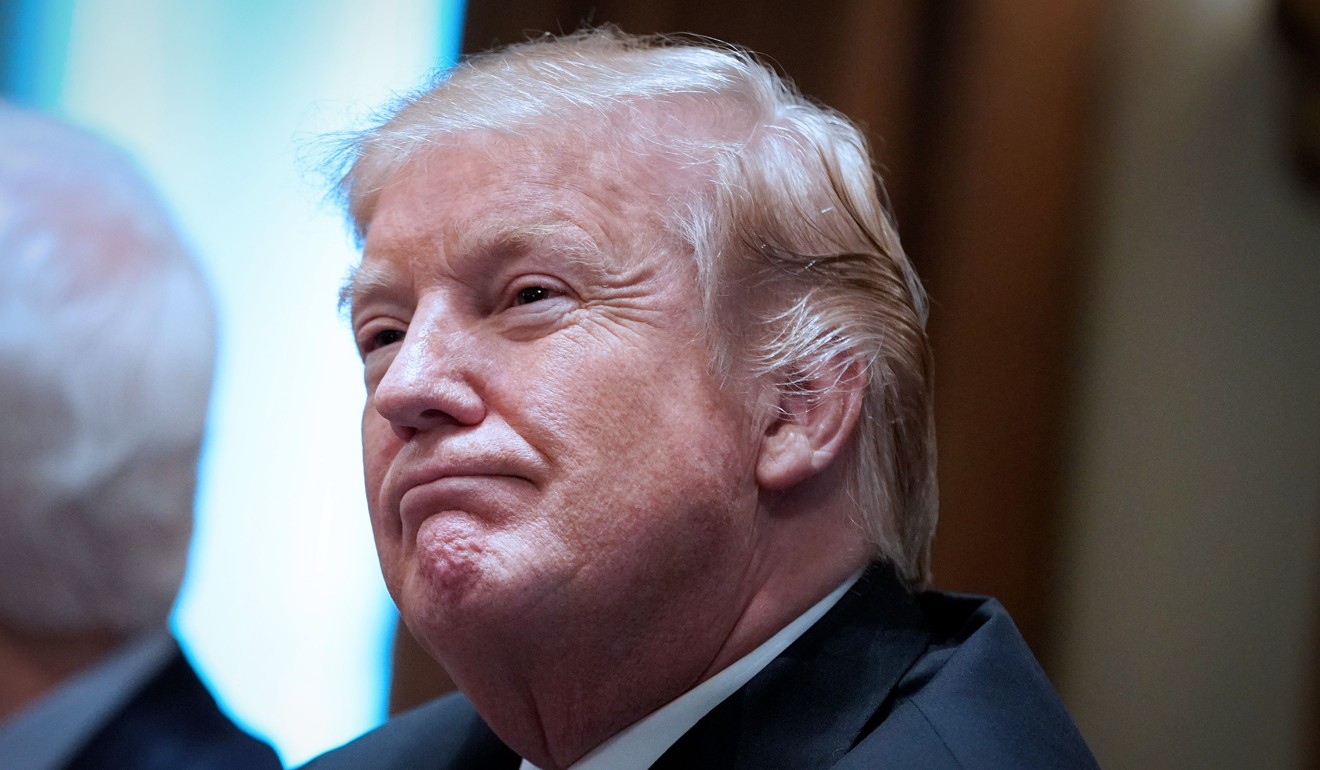
Trump’s trade tariffs put Xi’s trusted economic envoy in the shade despite limited fallout for China
Beijing urges restraint on duties as analysts warn that more trade action from Washington could be on the cards
Beijing slammed US President Donald Trump’s plan to slap hefty tariffs on steel and aluminium products – a move that analysts said overshadowed talks between US officials and President Xi Jinping’s most trusted adviser.
Industry insiders said the real impact of the duties on China’s steel industry would be limited but more trade action from Washington could follow.
Trump confirmed on Thursday that he would sign off on a 25 per cent tariff on steel imports and a 10 per cent duty on inbound aluminium products, with more details due to be released next week.
In a tweet on Friday, Trump said: “When a country (USA) is losing many billions of dollars on trade with virtually every country it does business with, trade wars are good, and easy to win. Example, when we are down $100 billion with a certain country and they get cute, don’t trade anymore-we win big. It’s easy!”
The Chinese foreign ministry responded to the tariffs on Friday by calling on the United States to “exercise restraint” in using trade protection tools and saying any misuse would have a serious impact on the international trade order.
The Ministry of Commerce said international trade was not a zero-sum game.
The US imported 35.6 million tonnes, or US$33.6 billion, of steel last year, about 36 per cent of its total consumption, according to global energy and mining research firm Wood Mackenzie and trade data provider Global Trade Tracker.
China accounted for just 2.9 per cent of the imports, according the US Census Bureau.
The China Iron and Steel Association said Chinese exports to the US were limited and the duties would only make American industry less competitive.
In Hong Kong, Economic Development and Commerce Secretary Edward Yau Tang-wah said the tariff on aluminium was discriminatory and the Hong Kong government had tried to contact the US to negotiate.

Macquarie chief China economist Larry Hu said the direct impact of the tariffs on China would be negligible.
“The products involved are just fairly small amount in bilateral trade portfolio,” Hu said.
But the announcement came as Liu He, director of the Office of the Central Leading Group for Financial and Economic Affairs, was in Washington for talks with US officials.
Scott Kennedy, from the Centre for Strategic and International Studies, said he did not expect that Liu would change Trump’s mind.
Kennedy said Liu was trying to restart the bilateral Comprehensive Economic Dialogue and persuade the US to back away from punitive action against China’s intellectual property practices.
“He’s not going to get either,” he said.
On Thursday Liu and the Chinese delegation met US Trade Representative Robert Lighthizer, National Economic Council Director Gary Cohn and Treasury Secretary Steven Mnuchin at the White House, a spokesman for the president’s National Security Council said.
Jacob Parker, vice-president for China operations with the US-China Business Council, said China was responsible for substantial trade and market distortions, and any attempt by Beijing to hit back at the US would only worsen strains.
“Retaliatory actions by China in response to US actions will get a lot of support in China, no doubt, but will just further undermine business community confidence and put the relationship on a downward path,” Parker said.
Ties between China and the US deteriorated quickly after November, with Washington refusing to recognise China as a market economy and labelling it as a strategic competitor. By refusing China market economy status, the US has wider discretion to impose higher duties on Chinese goods.
And on Thursday, the US Senate passed a bill that would strengthen ties between Washington and Taipei, triggering protests from Beijing.
Lu Xiang, a US affairs specialist at the Chinese Academy of Social Sciences, said there would be turbulence between Washington and Beijing this year.
“The risk of a military confrontation because of Taiwan is higher and more dangerous than a trade war between China and the US,” he said.
Yu Miaojie, deputy dean of Peking University’s school of national development, warned that trade spats were unavoidable.
“Visits by senior officials from the two countries can help reduce such frictions, but it can hardly eliminate them all. After all, it is decided by national interests,” Yu said.
Beijing was not alone in its opposition to Trump’s plans. The European Union warned of possible retaliation, and Canadian Trade Minister Francois-Philippe Champagne said it would hurt both sides of the border.
“Any tariffs or quotas that would be imposed on our Canadian steel and aluminium industry would be unacceptable,” Champagne said.

South Korea – the third biggest exporter of steel to the US – said it was in talks with Washington over the tariffs.
“For us, the worst case scenario was a 54 per cent tariff,” a South Korean trade ministry official said. “Still if the option for a global tariff of at least 24 per cent is taken, that will still affect our steel exports to the US.”
South Korean Trade Minister Kim Hyun-chong had been in the US this week, meeting US Commerce Secretary Wilbur Ross and other officials to raise concerns over an anti-dumping investigation and to limit the damage to South Korean companies.
Additional reporting by Wendy Wu, Edouard Morton, Sum Lok Kei, and Reuters


